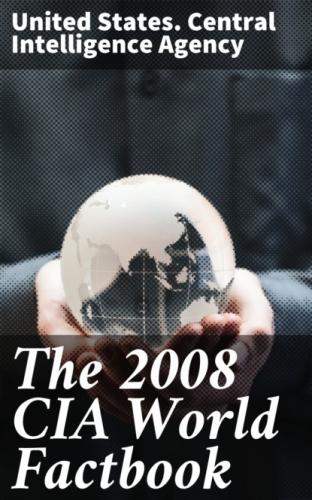Sex ratio:
at birth: 1.05 male(s)/female under 15 years: 1.02 male(s)/female 15–64 years: 1.03 male(s)/female 65 years and over: 0.79 male(s)/female total population: 1.02 male(s)/female (2008 est.)
Infant mortality rate:
total: 182.31 deaths/1,000 live births male: 194.38 deaths/1,000 live births female: 169.64 deaths/1,000 live births (2008 est.)
Life expectancy at birth:
total population: 37.92 years male: 36.99 years female: 38.9 years (2008 est.)
Total fertility rate:
6.2 children born/woman (2008 est.)
HIV/AIDS - adult prevalence rate:
3.9% (2003 est.)
HIV/AIDS - people living with HIV/AIDS:
240,000 (2003 est.)
HIV/AIDS - deaths:
21,000 (2003 est.)
Major infectious diseases:
degree of risk: very high food or waterborne diseases: bacterial and protozoal diarrhea, hepatitis A, typhoid fever vectorborne diseases: malaria, African trypanosomiasis (sleeping sickness) water contact disease: schistosomiasis (2008)
Nationality:
noun: Angolan(s) adjective: Angolan
Ethnic groups:
Ovimbundu 37%, Kimbundu 25%, Bakongo 13%, mestico (mixed European and native African) 2%, European 1%, other 22%
Religions:
indigenous beliefs 47%, Roman Catholic 38%, Protestant 15% (1998 est.)
Languages:
Portuguese (official), Bantu and other African languages
Literacy:
definition: age 15 and over can read and write total population: 67.4% male: 82.9% female: 54.2% (2001 est.)
Education expenditures:
2.4% of GDP (2005)
Government
Angola
Country name:
conventional long form: Republic of Angola
conventional short form: Angola
local long form: Republica de Angola
local short form: Angola
former: People's Republic of Angola
Government type:
republic; multiparty presidential regime
Capital:
name: Luanda geographic coordinates: 8 50 S, 13 14 E time difference: UTC+1 (6 hours ahead of Washington, DC during Standard Time)
Administrative divisions:
18 provinces (provincias, singular - provincia); Bengo, Benguela,
Bie, Cabinda, Cuando Cubango, Cuanza Norte, Cuanza Sul, Cunene,
Huambo, Huila, Luanda, Lunda Norte, Lunda Sul, Malanje, Moxico,
Namibe, Uige, Zaire
Independence:
11 November 1975 (from Portugal)
National holiday:
Independence Day, 11 November (1975)
Constitution:
adopted by People's Assembly 25 August 1992
Legal system:
based on Portuguese civil law system and customary law; modified to accommodate political pluralism and increased use of free markets; has not accepted compulsory ICJ jurisdiction
Suffrage:
18 years of age; universal
Executive branch:
chief of state: President Jose Eduardo DOS SANTOS (since 21 September 1979); note - the president is both chief of state and head of government head of government: President Jose Eduardo DOS SANTOS (since 21 September 1979); Antonio Paulo KASSOMA was named prime minister by MPLA on 26 September 2008 cabinet: Council of Ministers appointed by the president elections: president elected by universal ballot for a five-year term (eligible for a second consecutive or discontinuous term) under the 1992 constitution; President DOS SANTOS originally elected (in 1979) without opposition under a one-party system and stood for reelection in Angola's first multiparty elections 29–30 September 1992 (next to be held in 2009) election results: Jose Eduardo DOS SANTOS 49.6%, Jonas SAVIMBI 40.1%, making a run-off election necessary; the run-off was not held because SAVIMBI's National Union for the Total Independence of Angola (UNITA) repudiated the results of the first election; the civil war resumed leaving DOS SANTOS in his current position as the president
Legislative branch:
unicameral National Assembly or Assembleia Nacional (220 seats; members elected by proportional vote to serve four-year terms) elections: last held 5–6 September 2008 (next to be held in September 2012) election results: percent of vote by party - MPLA 81.6%, UNITA 10.4%, PRS 3.2%, ND 1.2%, FNLA 1.1%, other 2.5%; seats by party - MPLA 191, UNITA 16, PRS 8, ND 2, FNLA 3
Judicial branch:
Supreme Court and separate provincial courts (judges are appointed by the president)
Political parties and leaders:
Liberal Democratic Party or PLD [Analia de Victoria PEREIRA]; National Front for the Liberation of Angola or FNLA [disputed between Ngola KABANGU and Lucas NGONDA]; National Union for the Total Independence of Angola or UNITA (largest opposition party) [Isaias SAMAKUVA]; Popular Movement for the Liberation of Angola or MPLA (ruling party in power since 1975) [Jose Eduardo DOS SANTOS]; Social Renewal Party or PRS [Eduardo KUANGANA] note: about a dozen minor parties participated in the 1992 elections but only won a few seats; they and more than 100 other smaller parties have little influence in the National Assembly
Political pressure groups and leaders:
Front for the Liberation of the Enclave of Cabinda or FLEC [N'zita
Henriques TIAGO, Antonio Bento BEMBE]
International organization participation:
ACP, AfDB, AU, CPLP, FAO, G-77, IAEA, IBRD, ICAO, ICCt (signatory),
ICRM, IDA, IFAD, IFC, IFRCS, ILO, IMF, IMO, Interpol, IOC, IOM, IPU,
ISO (correspondent), ITSO, ITU, ITUC, MIGA, NAM, OAS (observer),
OPEC, SADC, UN, UNCTAD, UNESCO, UNIDO, Union Latina, UNWTO, UPU,
WCO, WFTU, WHO, WIPO, WMO, WTO
Diplomatic representation in the US:
chief of mission: Ambassador Josefina Perpetua Pitra DIAKITE chancery: 2108 16th Street NW, Washington, DC 20009 telephone: [1] (202) 785–1156 FAX: [1] (202) 785–1258 consulate(s) general: Houston, New York
Diplomatic representation from the US:
chief of mission: Ambassador Dan MOZENA embassy: number 32 Rua Houari Boumedienne (in the Miramar area of Luanda), Luanda mailing address: international mail: Caixa Postal 6468, Luanda; pouch: US Embassy Luanda, US Department of State, 2550 Luanda Place, Washington, DC 20521–2550 telephone: [244] (222) 64–1000 FAX: [244] (222) 64–1232
Flag description:
two equal horizontal bands of red (top) and black with a centered yellow emblem consisting of a five-pointed star within half a cogwheel crossed by a machete (in the style of a hammer and sickle)
Economy
Angola
Economy - overview:
